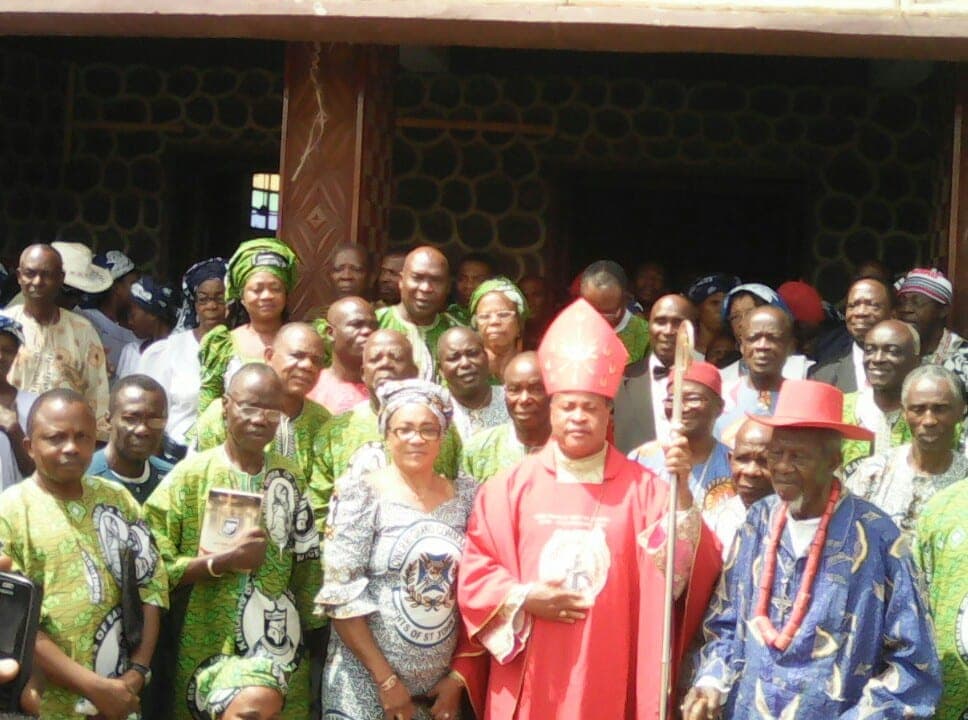Archbishop Ignatius Kaigama, president of the Nigerian bishops’ conference, has urged priests and laity of the trouble diocese of Ahiara to “put their grievances aside” and accept Bishop Peter Ebere Okpaleke, appointed by Pope Benedict XVI back in 2012, and who still hasn’t been allowed into the diocese because he’s not from the majority ethnic and linguistic group.
“We are not happy that the church in Ahiara has been outside the system for this long,” Kaigama told the News Agency of Nigeria.
“We are particularly not happy that the name of Nigeria is ringing in different parts of the world as people who are disloyal to the authority of the pope,” he said on Sunday, interviewed in his archdiocese of Jos, located in Nigeria’s “middle belt.”
Kaigama was referring to shockwaves produced by an ultimatum issued by Pope Francis in June, insisting that every priest in the diocese of Ahiara write a letter apologizing for refusing to accept papal authority and embrace Okpaleke as their bishop.
The deadline for that letter was July 9, and those who failed to comply faced a threat of suspension. The request had already been made by Cardinal Fernando Filoni of the Vatican’s Congregation for the Evangelization of Peoples, which oversees missionary territories. His request was sent in a letter dated June 24, 2014.
“It is our fervent prayer that the people of Ahiara will see reason and come back to the church that is founded on the obedience to the authority of God,” Kaigama said Sunday, appealing to the priests and the laity to “put their grievances aside and accept Bishop Okpalaeke so that the work of God can continue.”
Since the crisis began, no priestly ordinations nor confirmations have taken place, as both tasks are reserved for the bishop.
According to the pro-Okpaleke forum Mbaise Catholic, the majority of the priests complied with Pope Francis’s request and sent a letter apologizing for their rebellion, although some of them did so with reservations.
“On the directive of the pope that we should write him individually and personally to express our obedience and loyalty to him and ask for forgiveness for the contribution in the sorrows he has suffered because of the crisis in Ahiara Diocese, all the priests in the diocese have complied,” one of the priests told Crux late July, on the condition of remaining anonymous.
“He is our father, our loyalty to him cannot be compromised in any way.”
Yet not long after, he added: “But we hope he reviews his position, and appoints a different bishop.”
Similar words were expressed by Father David Iheanacho, who told Crux that he had written to Francis, “asking for forgiveness for my personal contribution in the sorrows he has suffered because of the crisis. I pledged my total loyalty to him as supreme pontiff and successor to St. Peter and vicar of Christ on earth. I expressed my willingness to accept whomsoever he sends and has appointed as my bishop.”
He claims that every priest has complied, because the pope doesn’t “joke around” with threats of sanction. He also said that Francis is well-loved in Ahiara, and that his word is “law for the priests and lay people of the diocese.”
“The only problem is we were all caught in a terrible dilemma between swallowing a bitter pill of injustice and obeying the Holy Father,” Iheanacho said on the phone. “Make no mistake about this, the dilemma still exists, and I do not know how it is going to be resolved. We are praying that the Holy Spirit enlightens the Holy Father to take the correct decision and resolve the problem in our diocese.”
Writing at the forum, layman Mark C. Nwoga claims that the ongoing crisis in Ahiara, and other dioceses facing similar upheavals, is not the result of a flawed process of appointment of bishops, but rather of a flaw among the priests.
“They are a few, ‘professional as opposed to vocational’ priests, not very prayerful nor pious, but very vocal with a worldly outlook and lifestyle,” he said.
Fundamentally, he said, the problem is that a few priests behave more like “political agitators seeking to be appointed bishops.”
Okpaleke’s appointment was met with protests and petitions calling for the appointment of a bishop from among the local clergy. Despite the ongoing rejection, he was ordained a bishop in May 2013, although his formal installation has yet to occur.
The Guardian of Nigeria reported on Saturday that the bishop declared that he’s not disturbed by the opposition against his appointment and that he’s awaiting his installation, a date for which hasn’t yet been announced.
Speaking at the 70th birthday celebration of a priest from his hometown, Okpalaeke said he can’t allow the crisis to distract him from serving God: “What they are saying is foreign to my vocation; my vocation comes from God, declared by the church.”















